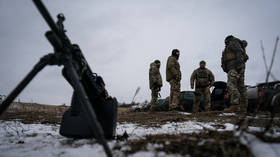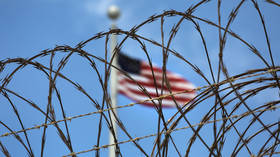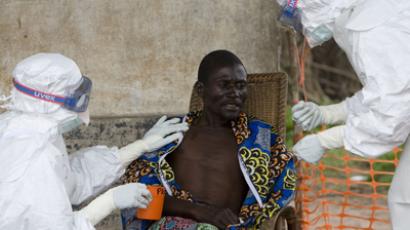Deadly Ebola now ‘a regional threat’, as virus spreads to Guinea capital
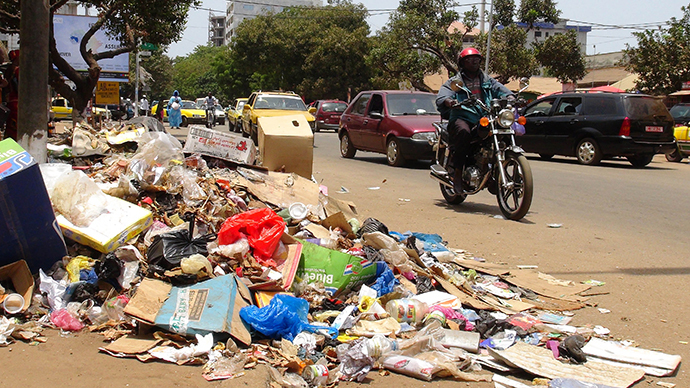
The outbreak of the deadly Ebola virus said to have already claimed 63 lives in rural Guinea has now spread to the West African nation’s capital, Conakry, with the Health Ministry ringing the alarm and officials calling it a “threat to regional security.”
A total of four capital dwellers have fallen victim to the hemorrhagic fever – one of the deadliest viruses known to man. They are currently in quarantine, Reuters reports, citing local Health Minister Remy Lamah.
The origin of the outbreak in Conakry appears to be an old man who visited a place about 150km away from the previously-identified outbreaks. After his funeral, four of his brothers started showing similar symptoms, and were immediately quarantined.
Medical sources also confirmed two staff members at the Kipe University Hospital in Conakry are exhibiting signs of the hemorrhagic fever. This is where the initial victims were treated upon discovery of suspicious symptoms.
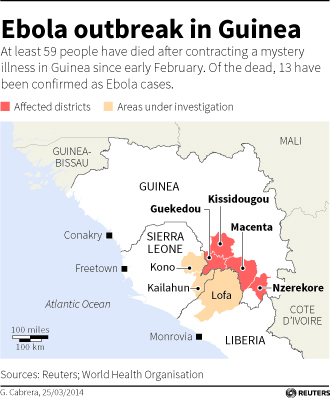
After the virus claimed 63 lives in the rural Forest region of Guinea, the spread to Conakry, with its population of 2 million – and an international airport – is seen as a serious escalation by officials. And the problem is beginning to affect the western region of Africa as well, with at least six Guinean arrivals dead in Sierra Leone and Liberia from symptoms closely resembling Ebola.
It is a very infectious disease whose symptoms involve diarrhea, vomiting and bleeding among other things, and it kills between 25 and 90 percent of those who fall victim to it, depending on the virus’s strain.
And the disease hadn’t been endemic to Guinea; it is more commonly witnessed in Congo, Uganda and Sudan – which is in the north-east. The first fatal outbreak in West Africa dates back to early February, when it took poorly equipped health authorities almost six weeks to identify the symptoms and scramble to contain them. But by then it was too late. The virus’s incubation period is three weeks.
The UN has now been brought in to help deal with the situation, as have a number of NGOs. This weekend saw Doctors without Borders (MSF) bring in 33 tons of aid to help treatment and containment efforts.
Local airline Gambia Bird has announced breaks and delays in services to Conakry to be in place by Sunday.
Sanitary controls in neighboring countries are being activated, and border crossings have been closed to the north, with Mauritania, who only left two border posts open with Senegal.
The search for any vaccine or drug has thus far been hampered by the disease’s rarity. But health experts warn against obvious dangers, such as eating fruit bats. The animal is a local delicacy, but is a widely-known potential carrier of the disease. Bush meat is another cause for concern. Both types of meat have now been banned – as are public funerals, where proximity to the body is often the cause for the infection of groups of people.
The virus is incredibly contagious. It can spread through contact with contaminated corpses – as in the case of the last outbreak involving the four men – as well as direct contact with blood, feces and sweat. It’s not hard to picture a nightmare scenario in a country prone to hot weather.
But the spread itself can come much more unexpectedly as well. All it takes is one infected plane passenger, and the prospects are truly harrowing: the local Health Ministry in Canada's Saskatchewan province put a man and his entire family in quarantine after he exhibited disturbing symptoms upon arrival from Africa by plane.
The virus first appeared in 1976 in the DRC (formerly Zaire), and has since killed 1,500 people. Its name takes from a river in northern Congo.


